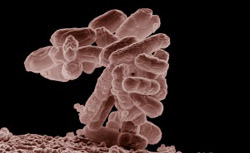Attention Shoppers: Make Your Holidays Bright with Great Gifts & Deals from Microsoft
From Kinect to Halo: Reach, from Windows Phone to Windows Live and Binging everything in between — a tour of some of Microsoft’s most popular gifts and holiday shopping tools
REDMOND, Wash. – Nov. 29, 2010 – With the holiday shopping season now in full swing, it’s time to take stock. Gift list? Check. Special deals? Check. Fun, futuristic gifts for the whole family? Check. Microsoft has you covered. Get a closer look at some of Microsoft’s most recent products and services to help make your holidays shine brightly this year. (more…)




